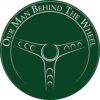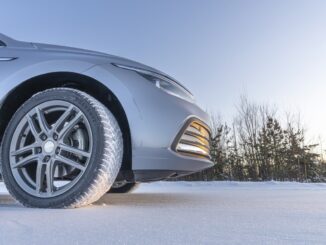Depending on where you live and how severe a winter you tend to experience you may have a set of winter tyres in your garage ready for when the first sprinkling of snow appears, allowing you to navigate the roads with greater safety. In some countries it is in fact mandatory to have winter tyres on your car.
However, if you live in the UK for example, where winter can throw all kinds of weather at us with perhaps a few days of snow but lots of rain, then an all season tyre is probably the best option and will also save you having to store a second set of tyres.
So as a car owner, what is the best option? Well in short, there is no simple answer, however the key lies in understanding exactly when, where and how your car will be used, along with the level of performance that you expect from your vehicle.
We spoke with Pirelli to find out what they recommend, and they said it very much depends on the individual driver. They agree that all season tyres work very well in most situations, apart from those more demanding ones where specific seasonal tyres remain essential for performance, such as in snow and ice. Both of these types of tyres have one fundamental thing in common, which is that the side of the tyre needs to carry a “M+S” or 3PMSF marking (depending on the regulations in each respective country) that identifies the type of tyre. This will avoid motorists from getting fined and will of course contribute to their safety in winter conditions.
Naturally, winter tyres are the preferable option if you are going to be driving a lot through the winter months, be it for business or pleasure or if maximum performance is needed in every type of winter conditions.
The colder temperatures mean that summer tyres do not perform at their best, however the softer compound found on winter tyres are much better for drivers looking for more performance, particularly when temperatures drop below zero, guaranteeing optimal roadholding, traction, and braking even on low-grip surfaces. This all means improved safety, as well as increased comfort for driver and passengers.
Pirelli say that the chemical properties of winter compounds reduce braking distances both in the wet by up to 15 per cent and on snowy surfaces by up to 50 per cent compared to summer tyres. The specific tread pattern on winter tyres also improves performance as the tread blocks are designed to trap snow and increase grip with the friction provided by ‘snow on snow’ contact without the need for snow chains. In wet conditions, the larger channels allow water to be rapidly and efficiently dispersed, reducing the risk of aquaplaning. Winter tyres are easily identifiable by M+S or also M&S and M-S markings, (which stands for mud and snow, written on the sidewall. This is also accompanied by the 3PMSF symbol, depicting a mountain and snowflake, standing for ‘three peak mountain with snowflake’. Pirelli think of it as a sort of hallmark for winter tyres.
For more powerful cars, Pirelli has the P Zero Winter range with tyres that are developed in collaboration with car manufacturers according to Pirelli’s ‘perfect fit’ strategy, designed for specific car types. Top of the range performance cars can be shod with Pirelli’s Winter Sottozero 3, while the Cinturato Winter tyres are ideal for city cars, urban SUVs and crossover vehicles. The Scorpion Winter is ideal for the latest-generation SUVs and crossover vehicles.
All season tyres are a great option for drivers who tend to use their cars for mainly city driving with temperatures ranging between -5°C to +25°C, and cover no more than 25,000 kilometres a year without the need for sport performance. All season tyres have a tread pattern that is balanced to work well in low and high temperatures and on both wet and dry asphalt surfaces, giving good overall performance as well as all-round versatility.
Pirelli offer a wide range of all season tyres for many vehicle makes and models. For example, the Cinturato All Season Plus is designed to meet the needs of drivers who have tyres between 15 and 20 inches in size and use their cars predominantly in cities. The Scorpion Verde All Season SF is ideal for Crossover vehicles or SUVs and also has Self-Supporting Run Flat tyres as an option.
So depending on where you live and where you drive during the winter months, there are plenty of tyre options for you to choose from so that you and your passengers are as safe as can be on the road.
Author Bio:
Simon Burrell is Editor of Our Man Behind The Wheel, a member of The Guild of Motoring Writers, professional photographer and former saloon car racing driver.
Photographs courtesy of Pirelli






Be the first to comment